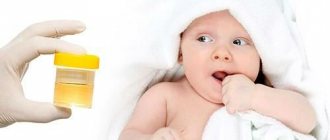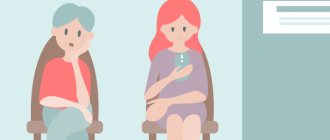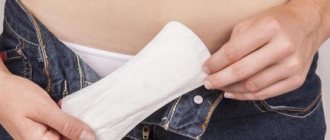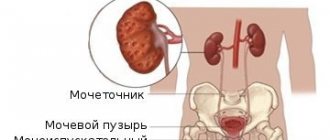Home / Pathologies / Others
Back
Published: 09/13/2020
0
1458
Alcohol is a potent drug that causes intoxication in those who take it and leads to addiction. Drinking people expose their body to constant toxic effects, fraught with a number of negative consequences. Alcoholic enuresis is one of these sad consequences of irrepressible alcohol consumption.
Urinary incontinence after alcohol is a fairly common symptom of the second and third stages of alcoholism. This phenomenon occurs both in women alcoholics and in men who abuse alcohol.
- 1 Factors causing urinary incontinence during alcohol intoxication
- 2 Pathogenesis of alcoholic enuresis
- 3 Prevention and treatment of urinary incontinence
- 4 Treatment of alcoholic enuresis with traditional methods
What it is
The phenomenon is uncontrollable, involuntary urination that occurs primarily during sleep. Typically, this condition is observed in preschool children, which is considered practically the norm, although it requires some correction, but it can occur in both men and women at any age.
Much less frequently, but it still happens that involuntary urination occurs during wakefulness, in the daytime.
Types of pathology
In medical practice, enuresis (the second name for incontinence) is usually divided into two types:
- Primary. This type is characterized by the fact that the patient did not have a so-called dry period, that is, a period of time when the disorder did not manifest itself for more than six months. This type of enuresis is more typical for pediatric patients.
- Secondary. At its core, it is a relapse of primary enuresis. The “dry” period can last up to several years. This form most often develops in adolescence and adulthood.
Features at different ages
It has been noted that in childhood, urinary incontinence most often occurs in boys, while girls are less likely to experience this pathology. On the contrary, in adulthood, men suffer from enuresis much less frequently.
In childhood, it is predominantly boys who suffer from bedwetting; in adults, the picture is exactly the opposite.
However, men tolerate this disease much worse. This is primarily due to psychological problems. Representatives of the stronger sex often turn to doctors for help when enuresis is already advanced and is accompanied by complications.
In women, urinary incontinence indicates the presence of some disease, usually gynecological. It has been noticed that this pathology more often affects women who have previously given birth. Moreover, the more births there were and the more severe their course, the higher the likelihood of developing enuresis.
In older people, urinary incontinence occurs quite often and is often a consequence of age-related changes. Enuresis in older age rarely leads to complications, but this does not mean that the disorder does not need to be treated.
Causes
Urinary incontinence during alcohol intoxication in men, or spontaneous excretion of biological fluid is explained by the fact that such drinks contain an increased concentration of the diuretic component. This condition is considered temporary, so it cannot be called a disease.
The main symptoms of alcohol intoxication in the body. Source: ppt-online.org
After a person drinks alcohol, regardless of its type (beer, vodka, wine, etc.), the alcohol penetrates the blood within two, maximum three minutes. It primarily affects the brain by slowing down the activity of nerve receptors. This is where incoordination of movements appears.
Also, in this case, people experience disruption in the functioning of all body systems. If a person does not take such drinks constantly, then he does not experience enuresis. But abuse is considered an aggravating factor, in which urinary incontinence often occurs during alcohol intoxication.
Causes of bedwetting
There are many causes of nocturnal enuresis. In children and adolescents, psychological factors occupy the leading place. Severe stress, extremely vivid emotions, excessive psycho-emotional stress that a child cannot cope with - all this can cause bedwetting.
In adulthood, the nervous system is already formed and is able to cope with shocks, so the neurotic causes of this disorder fade into the background. Sources of problems associated with involuntary urination in mature and elderly people include:
- urethral sphincter dysfunction;
- disturbance of innervation of the bladder;
- structural abnormalities of the urinary system;
- infectious diseases of the pelvic organs (for example, often recurrent cystitis);
- tumor formations of the bladder.
Video: causes of urinary incontinence in adults
https://youtube.com/watch?v=ndOuuxxskfE
Risk factors
Risk factors that significantly increase the likelihood of nocturnal enuresis in adults and the elderly are:
- being female;
- age over 50 years;
- history of childbirth, especially difficult, protracted;
- excess weight;
Excess weight is a risk factor for the development of bedwetting in adulthood. - taking diuretics.
Pathogenesis of alcoholic enuresis
The body's protective reaction forces it to act accordingly after drinking alcohol. At an early age, people who drink often experience nausea as our body tries to remove the poison. In adults, the gag reflex is observed much less frequently, and tolerance to the toxin – alcohol – develops. Nevertheless, the body tries to remove this poison. The dehydration mentioned above occurs because the kidneys produce more urine in an attempt to remove toxins.
Alcohol itself also has a diuretic effect. The combination of these factors is superimposed on the body’s loss of self-control. This leads to the manifestation of alcoholic enuresis. Urinary incontinence occurs more often in men, but this can be explained by simple statistics of alcoholism: among young girls and women there are significantly fewer alcoholics than among the male half of the population.
Drunken sleep leads to ignoring natural urges. At some point, involuntary urination occurs, and perhaps bowel movements.
Both a beginner and a chronic alcoholic can describe themselves. At the second and third stages of the disease, alcoholic enuresis can develop into a permanent form, when the drinker will wet the bed almost every night.
Age-related changes in the body can only contribute to the development of this disease. Elderly people move little, the tone of the pelvic muscles is weakened. If you regularly drink alcohol, dystrophy and additional relaxation of the pelvic muscles are guaranteed. This will lead to chronic alcoholic enuresis.
Diagnostic methods
Diagnosis of enuresis is based on:
- patient complaints;
- laboratory tests;
- instrumental methods.
First of all, when a patient complains of urinary incontinence, the doctor conducts a survey and collects an anamnesis. In particular, to make an appropriate diagnosis in children, the patient must be at least five years old and have had at least 3 episodes of involuntary urination in the last six months. In adults, any such fact can be recognized as enuresis.
An ultrasound of the filled bladder and the same after urination is also mandatory. This allows:
- visualize the structure of this organ;
- exclude possible pathologies;
- assess the contractility of the urethral sphincter.
If necessary, ultrasound examination of other pelvic organs is performed.
Cystoscopy is also used to assess the condition of the mucous membrane of the urinary tract. This is an effective method, but quite painful and poorly tolerated by patients.
Cystoscopy is an instrumental examination of the internal structure of the bladder and urethra
To assess the frequency of urination, daily diuresis is monitored by calculating the amount of fluid entering and excreted by the body. For this:
- At 6 am, all the urine formed during the night is flushed into the toilet.
- Then, throughout the day, they urinate into a graduated container, noting on a piece of paper at what time and how much urine was excreted.
- It is also recorded how much liquid entered the body and at what time.
- The last time urine excretion is recorded is carried out at 6 am the next day, after which the observation diary is submitted to the attending physician.
Also, if enuresis is suspected, the doctor will prescribe a referral for general blood and urine tests in order to identify possible inflammation, if urinary incontinence is associated with infectious and inflammatory processes in the pelvic organs. In this case, leukocytes will be detected in the urine, and the content of leukocytes in the blood will be increased, and the erythrocyte sedimentation rate will also be increased.
Mechanism of development, causes and symptoms
Involuntary urination in a drunk person is due to the activity of the components of alcohol. They have diuretic properties.
This condition is of a transient nature. When a person gets sober, everything returns to normal.
Alcohol can be absorbed into the blood at a speed of 4-8 minutes. This helps to slow down the functioning of nerve receptors. Sometimes the functionality of important systems is disrupted. Most often the brain is affected.
Incontinence in a drunk person is due to the activity of the components of alcohol
Treatment
Treatment of enuresis is mandatory in both children and adults. It is important to note that it must be comprehensive and combine several techniques:
- drug therapy;
- physiotherapy;
- traditional methods;
- psychological help.
In exceptional cases, it is necessary to resort to surgical intervention.
Drug therapy
Drug therapy for bedwetting in adults includes:
- Antibiotics. It is assumed if the cause of enuresis is an infectious lesion of the urinary system. The most popular drugs in this series include: Amoxicillin, Ciprofloxacin, Clarithromycin. The antimicrobial drug Metronidazole, which has virtually no serious systemic side effects, is also widely used.
- Nootropic drugs. This group of drugs normalizes the functioning of the nervous system, relieving its tension. The most available nootropics are Piracetam and Glycine.
- Antidepressants. Widely used for enuresis caused by psychogenic factors, which drugs in this group eliminate. Applicable to situations involving urinary incontinence, the drug Amitriptyline is usually prescribed.
- M-anticholinergics. When there is spasm of the bladder walls, this group of drugs helps to relax them, making the urge to urinate less frequent. Metocin and Driptan are the most commonly prescribed drugs in this group.
Photo: remedies for the treatment of nocturnal enuresis in adults
Amoxicillin is a broad-spectrum antibiotic prescribed for bacterial diseases that cause enuresis.
Piracetam improves brain activity
Amitriptyline helps eliminate bedwetting
Driptan increases bladder capacity and reduces the frequency of the urge to urinate
Physiotherapeutic methods and exercise therapy
Physiotherapy methods in the treatment of enuresis have proven themselves to be an effective and safe means of getting rid of this disease:
- Electrosleep. It is an artificial sleep caused by exposure to special currents. Reduces nervous tension, especially effective in the treatment of enuresis in children.
- Electrophoresis. The essence of the method is to influence the human body with electrical impulses in order to improve the functioning of the nervous system. Under the influence of current, medications are injected into the patient's skin.
Exercise therapy for enuresis is aimed at strengthening the pelvic floor muscles. For these purposes, the following exercises are most effective:
- Scissors. Lying on the floor, you should spread your legs as wide as possible. Then slowly connect them, returning to the starting position, while the muscles should be as tense as possible.
The “scissors” exercise helps strengthen the muscles of the pelvic floor and the anterior abdominal wall. - Exercise "raise the pelvis." In a lying position, your arms should be clasped behind your head, and your legs should be bent at the knees. Next, you should raise your pelvis as much as possible, tensing the corresponding muscles, then return to the starting position. The exercise must be performed at least 12 times.
Video: Exercise therapy for urinary incontinence
Surgery
The use of surgical methods in the treatment of enuresis in general is not indicated. Conservative treatment is quite effective for all types of urinary incontinence. However, in some cases it is necessary. The main indications for surgery are:
- congenital anomalies of the urinary system;
- atrophy of the pelvic floor muscles.
The most commonly used surgical procedure is sling surgery. Using small incisions, a silicone loop is inserted into the body, the purpose of which is to fix the position of the bladder neck or urethra.
The sling is passed under the neck of the bladder, raising it slightly, and attached to the abdominal wall
Video: diagnosis and sling surgery for urinary incontinence
Traditional methods
Traditional methods are widely used for bedwetting at any age. But they should not be a substitute for treatment prescribed by a doctor. Only a specialist can identify the cause of the pathology and select measures to influence it. Traditional recipes can be used as an addition to this therapy or as preventive measures.
Widely used:
- Infusion of dill seeds. For 1 glass of boiling water take 1 tbsp. a spoonful of dill seeds, which are brewed in it and left for 3 hours. After this, the drink should be strained and taken 1 glass once a day.
Dill fights inflammatory processes in the urinary system, and also relaxes the smooth muscles of the bladder and ureters, relieving their spasms - Sage tea. 40 grams of dry raw materials should be poured with 1 liter of boiling water and allowed to brew for 5 hours. Then the infusion should be filtered and taken three times a day, half a glass at a time.
Sage has an antimicrobial effect on the genitourinary organs
Enuresis and its varieties
Urinary incontinence during alcohol intoxication is provoked by toxic poisoning of the body, which has a depressing effect on the central nervous system.
A sleeping drunk person does not feel the urge, does not wake up and urinates “under himself”. When sobering up, this does not happen, which is why the process of incontinence is not a disease, but a symptom.
Depending on the nature of the pathology, it is divided into several types:
- primary, or permanent;
- secondary, or acquired;
- recurrent with periods of remission and exacerbation.
Enuresis can be the result of stress and manifest itself when laughing, coughing, sneezing, lifting weights, or exercising . With dysfunction of the nervous system, the bladder becomes atonic, and urinary incontinence becomes involuntary due to the lack of urge to empty. This mainly happens at night, when all the muscles of the body are completely relaxed.
With complete incontinence, bladder emptying can occur at any time, especially with the development of severe pathologies and disorders of the nervous system.
Possible complications and consequences
Enuresis is a disorder that can be fairly easily corrected . If you do not ignore the problem, but immediately consult a doctor, then the chances of correcting the situation are very high. In old age, when enuresis becomes a companion to any other diseases, its prognosis depends directly on the success of curing the underlying disease.
Enuresis in itself cannot lead to serious consequences. Its danger lies primarily in the formation of feelings of inferiority, uncertainty and other psychological problems. This applies to both children and adult patients.
Consequences of drinking alcohol
After a person begins to regularly drink alcoholic beverages, a state of temporary or transient enuresis occurs. A characteristic feature of this disease is the spontaneous release of urine due to the rapid filling of the bladder with alcohol products. This is when a state of incontinence occurs. In other words, when alcohol is consumed excessively, it penetrates into the bladder area, negatively affecting the nervous system and receptors of the genitourinary organs, which ultimately leads to incontinence.
Two minutes after drinking alcohol, alcohol particles are spread throughout the body, which leads to a negative effect on the condition of cells. The brain is particularly destructive, leading to dysfunction of the central nervous system. Toxins formed by alcohol breakdown products significantly impair the functioning of the central nervous system.
In addition to enuresis, a person who regularly drinks alcohol has problems with internal organs and the central nervous system.
Due to frequent consumption of alcohol-containing liquids, the percentage of alcohol breakdown products in the blood increases. This leads to disruption of the functioning of certain internal organs and the nervous system as a whole. With regular alcohol intake, brain function is inhibited, in particular the pituitary gland, which is responsible for the production of central nervous system sensitivity hormones. As a result, the human nervous system ceases to fully perform its functions, which leads to a general deterioration in the condition of the human body and especially the urinary system.
Enuresis is not a pleasant disease, during which a person also begins to go to the toilet more often than usual. This is due to the fact that urine output begins when the bladder is not completely filled. It is enough to fill it halfway for spontaneous urination to occur.
How to fix the problem
Let's start with the fact that you should eliminate from your life the use of drinks that lead a man to a plant. Any abuse leads to problems not only in terms of urination, but also destroys life. It is naive to believe that a person is able to stop drinking on his own if before that he slept under the bushes and did not realize what he was doing. This will require specific treatment and assistance from a psychologist and narcologist.
The second stage will be an examination. Even if you stop drinking, alcohol will in any case disrupt the functioning of most systems and organs. The third can be considered physical education or physical exercise. This is a great distraction from a long-standing habit. Medical treatment will need to be comprehensive, and include drugs to cleanse the blood, stimulate the functioning of the affected organs, sedatives, and often necessary painkillers. Among others, the most popular for achieving results are Proproten, Colme, Acamprosat. The main thing is not to forget about the kidneys, they were the most stressed. A kidney infusion will help in cleansing and normalizing them. You can prepare it yourself or buy it ready-made at the pharmacy.
pochke.ru
Prevention
Prevention of the disease should be carried out from a very early age. Experts advise adhering to the following rules when raising children:
- restriction from stressful situations and emotional turmoil;
- adherence to daily routine;
- limiting fluid intake in the evening;
- preventing the child from becoming hypothermic;
- Three hours before bedtime, quiet time is recommended;
- put the child on the potty before bedtime and wake him up during the night for conscious urination;
- Do not scold the baby for uncontrolled urination, express patience.
Prevention of nocturnal enuresis in adult men also involves following a daily routine and limiting fluid intake in the evening. The amount of water should be consumed during the daytime. It is also advised to exclude diuretic products (beer, coffee, tea, fruit juice) from the diet.
Experts advise giving preference to hard mattresses to maintain the spinal column in proper condition and to make it easier to wake up if the urge occurs.
However, the most important factor in the occurrence of the disease remains the emotional state of a person, so it is important to avoid excessive stress and shock.
Enuresis due to alcohol consumption
Alcoholic enuresis occupies a special place. This type of disorder occurs during alcohol intoxication. Experts do not classify it as an independent disease, but consider it as a syndrome associated with alcohol consumption.
There are a number of reasons behind the development of alcoholic enuresis:
- Intoxication. Toxins contained in alcoholic beverages negatively affect the peripheral nervous system, contributing to sphincter dysfunction.
- Overloading the body with fluid volume, and alcohol has a high diuretic effect.
- Depression of consciousness. When intoxicated, sleep becomes deeper. An adult man cannot control the urge to urinate, either while awake or while asleep. There are often no memories of what happened.
- Progression with age. Normally, the muscle tone of the pelvic floor weakens over the years. And when this is combined with alcoholism and physical inactivity, the process accelerates significantly. The likelihood of enuresis increases significantly.
Alcoholic drinks that have the highest diuretic effect include beer, wine, ale, and herbal tinctures. Vodka, cognac and whiskey significantly disrupt the water-electrolyte balance (the ratio of salts to fluid in the body) and the functioning of the adrenal glands. The combination of alcoholic beverages leads to increased effects on the kidneys, with an increased risk of enuresis in men.
There is no specific treatment for alcoholic urinary incontinence. It is necessary to eliminate the main reason: eliminate alcohol. It is required to adhere to the principles of a correct lifestyle. You will need to consult a urologist, and if you cannot give up alcohol on your own, a narcologist.
Varieties of the disease
Enuresis in adult men can be of several types:
- stress urinary incontinence. Any physical activity or emotional outburst can cause involuntary urination. Sneezing, coughing, running, jumping, laughing - all this and much more can serve as a catalyst for an unpleasant symptom. The very principle of the development of incontinence is due to the fact that an increase in intra-abdominal pressure leads to an increase in intravesical pressure, but at the same time the person does not have a direct urge to urinate;
- urgent type. In this case, there is a urge to urinate, but there is a very small interval between it and the leakage of urine. The person simply does not have time to reach the restroom;
- mixed look. This is a combination of the two previous varieties. Most often occurs in older women.
In general, the number of urinations depends on the amount of fluid you drink. If we talk about the night time, then a person should not wake up from the desire to urinate. This is due to the fact that the kidneys, which are responsible for producing urine, are at rest.
Symptoms
The main symptom of the disease is involuntary urination during night sleep. Based on the number of urinations, their frequency may be single for several months. But in some cases, urine is released several times during the night. A neurosis-like syndrome is mixed in with the main symptom.
The appearance of anxiety and restless sleep in patients is noted. Many patients worry about this deficiency. The disease intensifies under the influence of situations that traumatize the psyche. In combination with urinary incontinence in children, less often in adults, encopresis occurs, which is caused by the inability to control the act of defecation.
No ads 2
Diagnosis in adulthood
If signs of uncontrolled urination appear in men, regardless of whether it occurs occasionally or constantly, at night or during the day, a comprehensive examination will be required. Diagnostics include:
- careful study of the anamnesis (history of the development of the disease), filling out special questionnaires by the patient, keeping a diary of “urinary incontinence” (such diaries are filled out at home for three days, then the result is provided to the urologist so that he can assess the total volume of urine per day, the ratio of urination during the day and at night, in a dream);
- urological examination;
- laboratory tests: general and biochemical blood tests, general urinalysis, daily urine collection results;
- instrumental methods: ultrasound examination of the kidneys and bladder, endoscopic (cystoscopy), x-ray (excretory urography) and urodynamic examinations.
Carrying out a set of diagnostic measures will make it possible to establish as accurately as possible the nature of the development of enuresis, carry out a differential diagnosis between possible causes and begin competent treatment.
Medical examination
The examination of a patient with enuresis begins with the study of episodes when, after four years of age, the child began to urinate at night. The duration of manifestation of the syndrome is important. In adults, any cases of urinary incontinence, both at night and during the day, are considered.
Survey plan
To clarify the diagnosis, the doctor palpates the patient’s abdomen. then anamnesis is collected and the genital organs are examined for the presence of defects - congenital or acquired. The diagnostic plan includes the following types of examination of the patient’s body:
- taking bacteriological cultures;
- clinical blood testing;
- blood test for glucose and vasopressin levels;
- uroflowmetry;
- Ultrasound of the pelvis.
Differential diagnosis
In some cases, it is necessary to determine the volume of the bladder. For this purpose, cytoscopy and cystourethrography are performed. The results of the examination show active stimulation of the part of the brain responsible for urination. Diagnosis is carried out during the period of night rest and daytime wakefulness.
Further, such types of diagnostics may be required as:
- general urine analysis;
- MRI of the spinal cord and brain;
- pelvic floor examination to determine the level of muscle weakness.
If the symptomatic picture and examination results confirm the neurogenic state of the bladder, the doctor will prescribe complex therapy.
The use of medications for the treatment of enuresis, aimed at reducing bladder overactivity. The doctor can also prescribe home treatment with auxiliary methods of traditional medicine so that the patient can not wet the bed and improve the quality of life.
Therapeutic methods for treating enuresis
Physiotherapeutic procedures help normalize the functioning of the bladder and have a positive effect on the central nervous system.
The treatment plan includes:
- Electrosleep, which has a sedative effect on the central nervous system and has a beneficial effect on human sleep.
- Magnetic therapy is used to relax the genitourinary system.
- Reflexology. Methodology, directions for increasing blood flow in the lumbar and pubic region. During the procedure, muscle spasms are relieved and nerve endings are stimulated.
- Acupuncture using Tibetan techniques to activate reflex points.
In addition to these methods, therapeutic physical training is prescribed, which is an excellent way to strengthen the muscles of the urethra. Such exercises are called “Kegels” in honor of the doctor of medical sciences who developed this method.
An electric alarm clock is used as an additional treatment measure and to prevent uncontrolled urination. The device gives a signal, after which the patient wakes up to empty the bladder in a timely manner. This prevents overflow and prevents urinary incontinence.
Nocturnal diuresis
The causes of nocturnal diuresis can be varied. Symptoms associated with nocturnal diuresis may precede serious urological problems and should be paid attention to.
Nocturnal diuresis may be inherited
Despite the fact that enuresis is not a genetic disease, the pathology can be transmitted from parents to children. Statistics show that if both parents had a problem, then the probability of the child developing the disease is about eighty percent. If only one parent suffers, then the risk of developing the disease is approximately forty percent.
Antidiuretic hormone in our body ensures that urine is not formed at night, so that a person does not need to urinate at night. If this hormone is not produced sufficiently by the body, then a problem arises. Some drugs for insomnia, as well as those used in psychiatric practice, can lead to nocturnal diuresis as a side effect.
Primary nocturnal enuresis in adults is usually a consequence of disorders of the urethra. If we talk about a secondary problem in an adult, then it can be a symptom of serious disorders in the body, namely:
- diabetes;
- stones or urinary tract infections;
- neurological disorders;
- prostate or bladder cancer;
- prostate enlargement;
- anatomical features.
Two methods are used to treat enuresis in adults:
- pharmacological therapy. Still, many tablets are aimed at alleviating clinical symptoms, but they do not eliminate the very cause of the disease. That is why, at the end of the treatment course, the disease can recur again. The attending physician should select the medicine;
- surgical intervention. This is an extreme measure that is used when other methods are ineffective.
Male enuresis is more common than female enuresis
Help at home may include the following:
- covers for mattresses. You can purchase waterproof cases or protective films to make cleaning easier;
- absorbent swim trunks. This development helps prevent involuntary urination. These swimming trunks are suitable even for people with sensitive skin;
- skin care products: soaps, lotions, cleansing wipes. They help relieve irritation.
The effect of alcohol-containing liquids on the body
After exposure to alcohol, a person's internal organs may develop involuntary loss of urine, which is called transient incontinence. This process is caused by the entry of an increased amount of ethyl alcohol into the bladder. At this moment, the central nervous system loses control over the management of processes in the lower torso of a person who has consumed alcohol excessively. In this case, the process of urination begins voluntarily due to weakening of the sphincter - the muscle responsible for delivering urine to the urinary canals and its further removal from the body.
Drinking too much alcohol can cause a person to wet themselves
Any alcoholic liquids, including beer, penetrate from the gastrointestinal tract into the blood plasma within two minutes. After this, the toxins found in alcohol spread throughout the body, primarily affecting the human nervous system and brain. Alcohol inhibits the functioning of the central nervous system, which leads to loss of control over all internal systems of the body. At this moment, an intoxicated person loses coordination of movements and control of timely bowel movements of the genitourinary system.
Alcohol-containing drinks that penetrate the frontal lobes of the brain contribute to the emotional liberation of the body. At the same time, the excitation of the cerebral cortex increases many times over. And the processes of inhibition of the body’s activity weaken, which leads to a complete loss of control over the body, for which the human brain is responsible. The body of a drug addict experiences similar processes.
With constant or periodic consumption of excessive doses of alcohol, the percentage of toxic substances in the human body instantly reaches high levels. As a result, nerve impulses from the brain do not always reach the necessary body systems on time. Because of this, the body’s sensitivity to internal processes in the body decreases, which leads to enuresis.
Excessive alcohol consumption has a bad effect on the functioning of the entire body.
Recommendations
- You should limit as much as possible the consumption of foods that irritate the bladder. The most harmful products: coffee, alcohol, tomatoes, citrus fruits, spicy seasonings, milk, chocolate products.
- Smoking worsens the overall health of the body, tobacco tar is an irritant to the walls of the bladder, they destroy the mucous membrane that performs a protective function. This also affects problems with the bladder - enuresis appears.
- Do you suffer from chronic constipation? The condition of the intestines will also have to be improved - the collected feces presses on the walls of the bladder, reducing its tone. Normalize intestinal function, for example, with the help of foods (prunes, beets, apples, dried apricots). They should be consumed daily, or one at a time – not all at once!
- Difficulty passing urine often occurs due to bacterial infections entering the genitourinary system. Take care of the quality of personal hygiene of the genitals at home, try to wear underwear that is made of natural material.
- A common cause of the problem can be overweight (obesity), which weakens the pelvic floor muscles. Obesity should be combated immediately. How? There are many ways: do not overeat, eat low-calorie foods, exercise, etc.
For your information! A common mistake when dealing with the problem of uncontrolled urine output is to drink very little fluid (to avoid running to the toilet less). This approach is completely wrong, since dehydration will occur in the body, and the urine in this case will be too concentrated. This can lead to irritation of the mucous membranes, which will lead to another problem - vaginitis, urethritis. Drink as much water as you want!
Lingerie
When choosing underwear for urinary incontinence, it is important to consider several factors: the patient’s preferences, the causes and degree of urinary incontinence, the person’s physical capabilities, and the availability of outside help. Today, many models of both disposable and reusable panties are produced, differing in size, shape, and absorption capacity. They are quite comfortable and protect against leaks. Disposable panties, or adult diapers, are used for severe cases of illness, bedwetting, and for bedridden patients.
Gaskets
For mild to moderate urinary incontinence, women use regular panty liners or sanitary pads for menstrual periods. However, there are special urological pads for disposable and reusable use. Disposable ones are convenient and practical, but are quite expensive. Reusable ones are a little cheaper, but they need to be washed and dried. They are used with special underpants, to which they are attached. The sizes of urological pads vary depending on the volume of fluid they absorb.
Yes, the problem of urinary incontinence is unpleasant and difficult, but with some effort and perseverance, it can be overcome. A set of folk methods and remedies, muscle training and drug treatment will definitely do their job. Be healthy!
Enuresis in adults, or urinary incontinence, is a rather delicate problem that causes great discomfort. This problem is associated with uncomfortable sensations not only from the physiological state; it is difficult for the patient to adapt to society; problems with others and psychological disorders often arise.
Few people are pleased to talk about this problem at all, yet treatment of enuresis in adults is the task of a qualified specialist. Usually, the pathological process is considered by doctors not as a separate disease, but as a result of some other disorders. In general, you may need to consult various specialists: psychologist, neurologist, nephrologist, urologist, etc.










